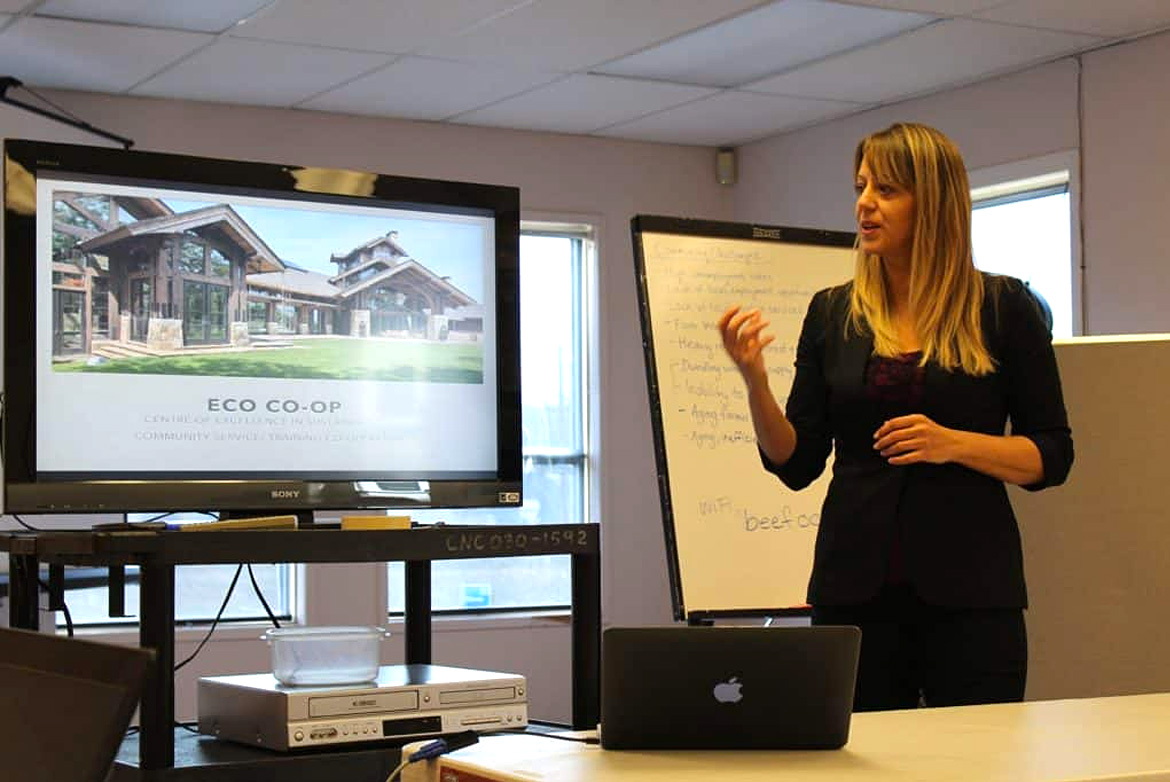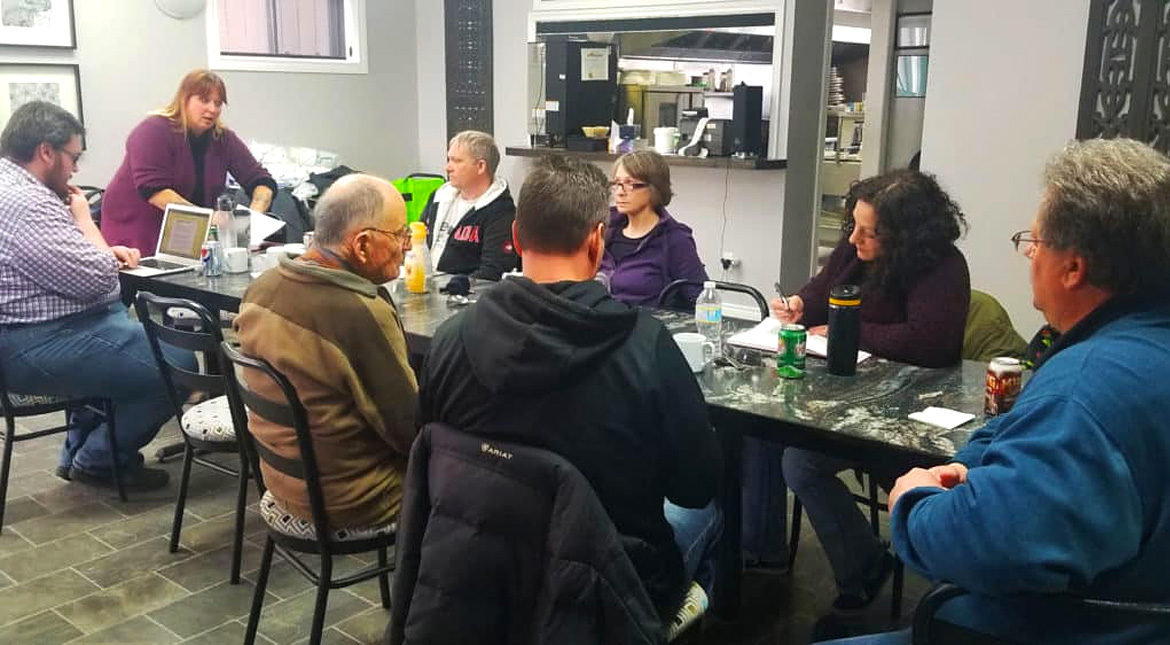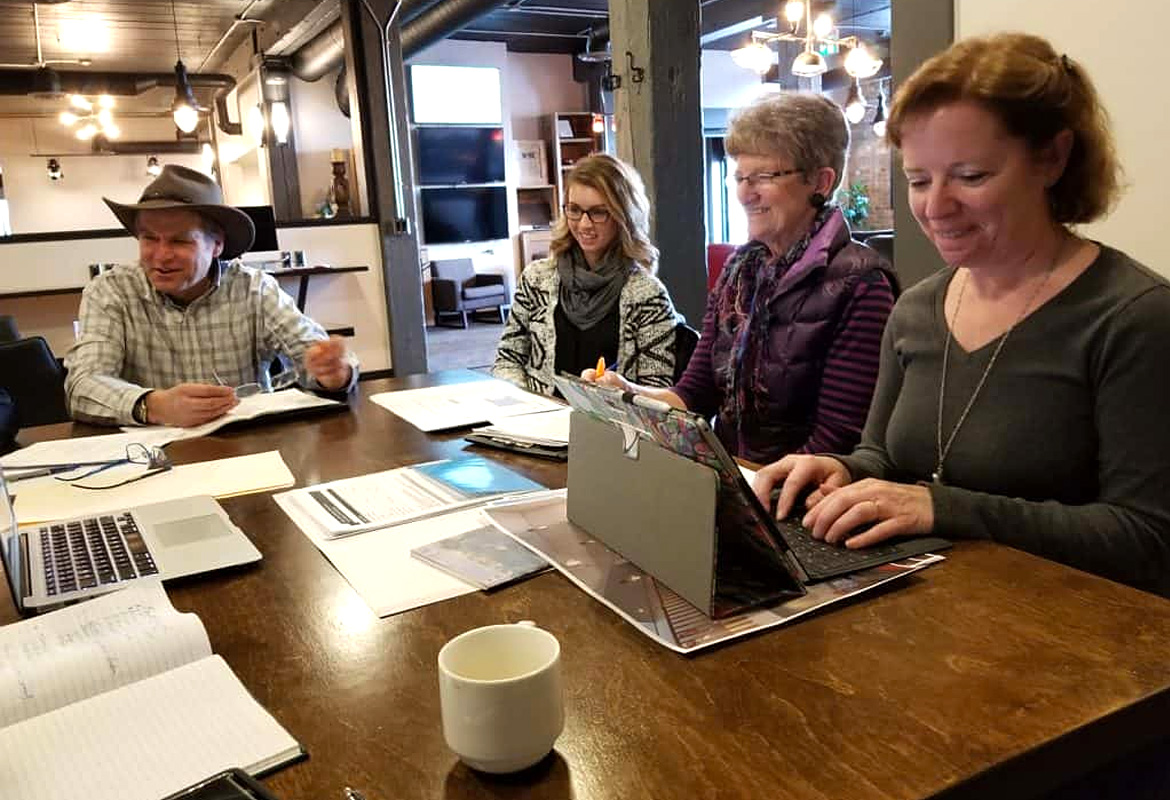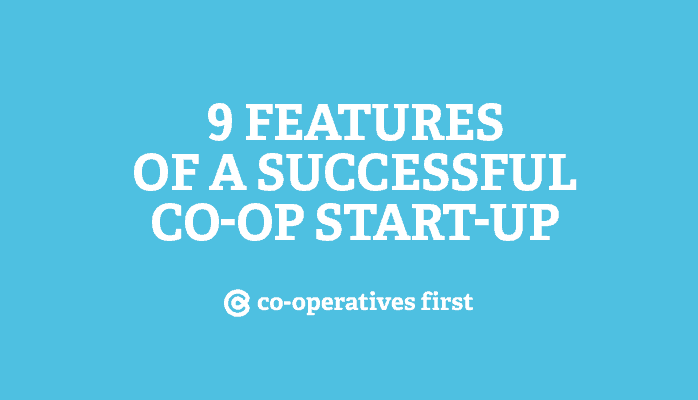Looking at successful co-op start-ups
Starting a new co-op is exciting, rewarding, and can have far-reaching benefits. It also takes a lot of work. Many business ideas struggle to get past the start-up phase, and when this happens a lot of effort and money is wasted. The resulting disappointment often impacts a lot of people — so give your co-op the best chance to succeed by keeping these things in mind. Here’s 9 common facets of all successful co-op start-ups.
Share your idea
You have an idea. Share it with people. Build interest in it. Talk to everyone you meet about this idea, but make sure to speak with likeminded people or those who could also benefit from your idea. The more you talk about it, the more developed it will become. The more developed your idea, the better your chances of convincing others to join the effort.

Be a leader
Every co-op needs a champion to push the project forward.
Often a group is more comfortable waiting for someone (anyone and everyone) else to step up and do what needs to be done. Rather than go through the effort and stress of starting a business themselves, most people are happy to let others do it for them. This is understandable. It’s important to have leadership and someone driving the project if it’s going to get done.
But a co-op is also not a business of one person. Being a leader of a co-op means sharing the vision with others, listening to their feedback, and ensuring they have a voice in the process. A variety of perspectives will enrich your idea and lead to a better, more successful co-op.
Gather some people power
Successful co-ops have people power. A group (of 3 or more in most provinces) needs to come together to work towards a common goal and recruit supporters and members along the way.
A successful co-operative is a group of people whose shared goal reflects a specific market or community opportunity. However, success also depends on being able to keep people engaged and supporting the organization. A consumer co-op without customers will go out of business. A producer co-op without producers has nothing to market.
A co-op needs people. So, go get some people to power your co-op.
Research and plan

Whether you’re planning on asking for private investment from individuals, a financial institution for a loan, or a funding agency for a grant, it’s best to start with a feasibility study. The study tests your idea against an existing market and sketches potential risks and opportunities you’ll face.
From there, build a business plan using the feasibility study as a guide. Having a plan, and evidence that supports the idea, will help make a case to investors, lenders, and funders. It will also provide a roadmap for moving forward and offer opportunities to measure successes.
Understand capital needs
Like all business start-ups, co-ops need financial capital. How much you’ll need depends on your idea. Constructing a new store costs a lot more than starting a community garden, for example.
Understand your financial needs, goals, and projected outcomes. Having a firm grasp of the capital costs required to launch the business, the cashflow needed to keep it going, and the results you hope to achieve in spending this money should help provide a clear vision of the co-op’s financial realities. Properly understanding capital needs means making successful co-op start-ups.

Find money
Finding money is hard. Non-repayable grants are great, but rare and there is stiff competition for the few that exist. Borrowing the money from a traditional lender is an option but taking on debt is a major risk and should be carefully assessed.
Raising money is perhaps the best source of capital. To do this, you need to convince people to invest in your idea. You’ll need a strong business case, a leader with enthusiasm, and a pitch clearly expressing how the co-op provides value.
Be excited. But a little cautious.
When you’ve got a great idea for a business, it’s natural to be excited. Your enthusiasm and energy can help persuade others to get involved.
But it’s not uncommon for energetic, optimistic entrepreneurs to get a bit ahead of themselves. While the ‘go hard or go home’ mindset has its benefits, it can lead to going too fast and not thinking through the opportunity properly. A third party, like Co-operatives First, can help provide perspective and explore the opportunity more rigorously.

Keep a long view
‘Go hard or go home’ can be a good strategy when building a successful co-op start-up, but sometimes starting with a smaller, more manageable idea is a better path forward for a co-op. Once you have a better understanding of your market and the resources to do so, scale up.
Take for example the massive Co-operative Refinery Complex in Regina, SK. It started out as a 500 barrel a day skimming plant. Today, 80 years later, the refinery produces 130,000 barrels a day, ships over 17 million litres of fuel products per day, and has about 1,000 employees. This unique co-op’s 8 farmer founders clearly understood the value in keeping the long view and growing incrementally.
Do some local ‘politicking’
Initiatives often need the right support from the right people (at the right time) to move forward. Local political realities are important when it comes to getting through red tape and gaining access to land or capital.
So, who are the key players in your community? Whose opinions or connections do you need to have on board to move your project forward? Who has influence or political weight? Do your best to get them on board. (Or at least to speak highly of your idea.)
Being aware of conflicting interests and potential roadblocks is also a good idea. Think about how you could mitigate these issues early. Preventing every issue that could come up is impossible. Thinking about potential roadblocks or complications ahead of time can save you headaches down the line.

Get guidance
Successful co-op start-ups take a lot of work. From understanding your market and developing a business plan to writing bylaws and making sure you’re following government regulations, the process can be a bit overwhelming.
A number of organizations can provide guidance during the start-up process. Research your local and regional supports, but also look to provincial and federal ones as well. Community Futures and local economic development officers are a great place to start.
At Co-operatives First, we help people create co-ops. We provide human support, but can also provide feasibility studies, legal support, and business plans. Plus, we’ve created a comprehensive resource site designed to get your co-op up and running.
If you have questions, contact us. If you like what you’ve read and think others will too, please share.

 Written by
Written by 


